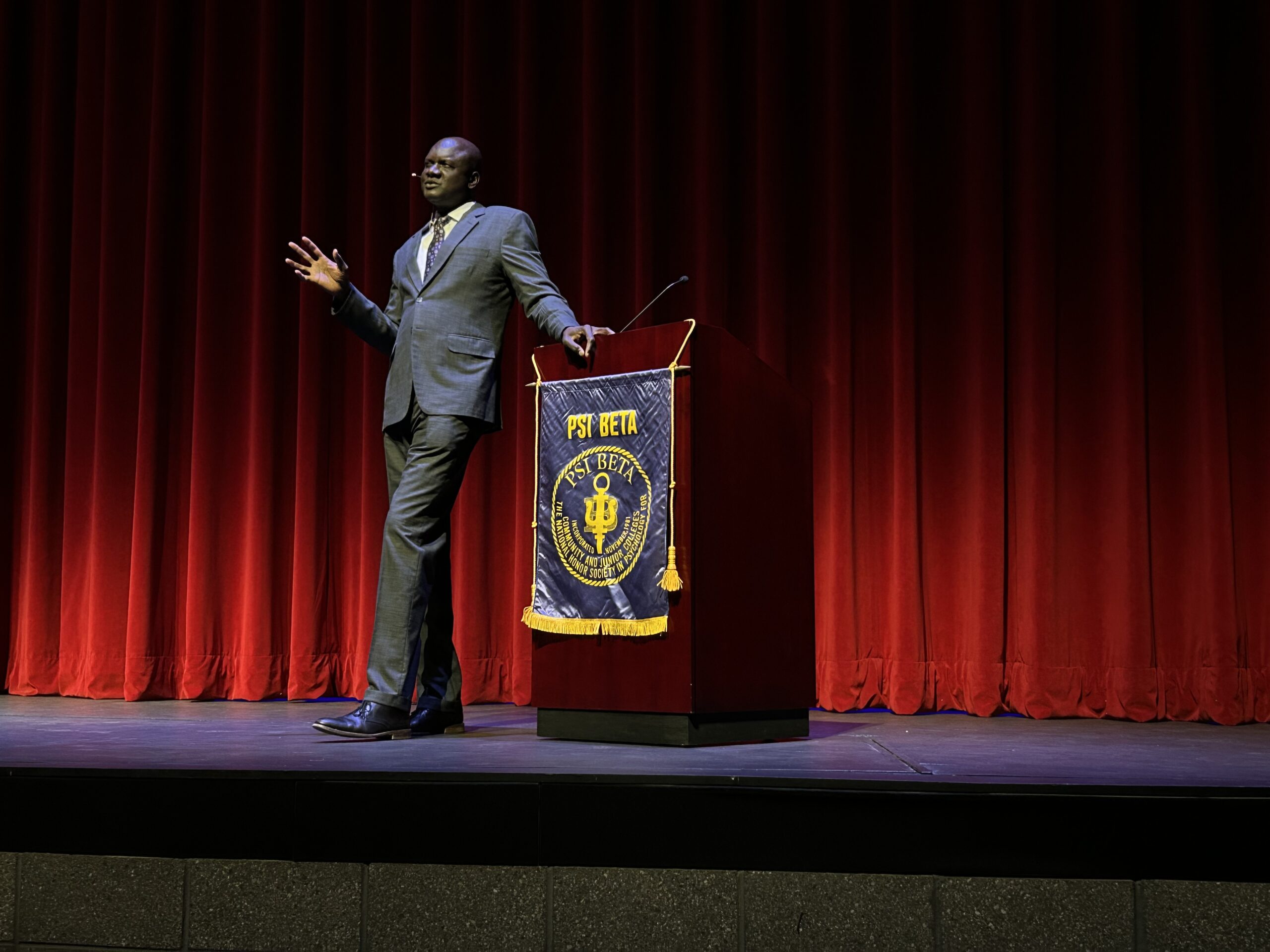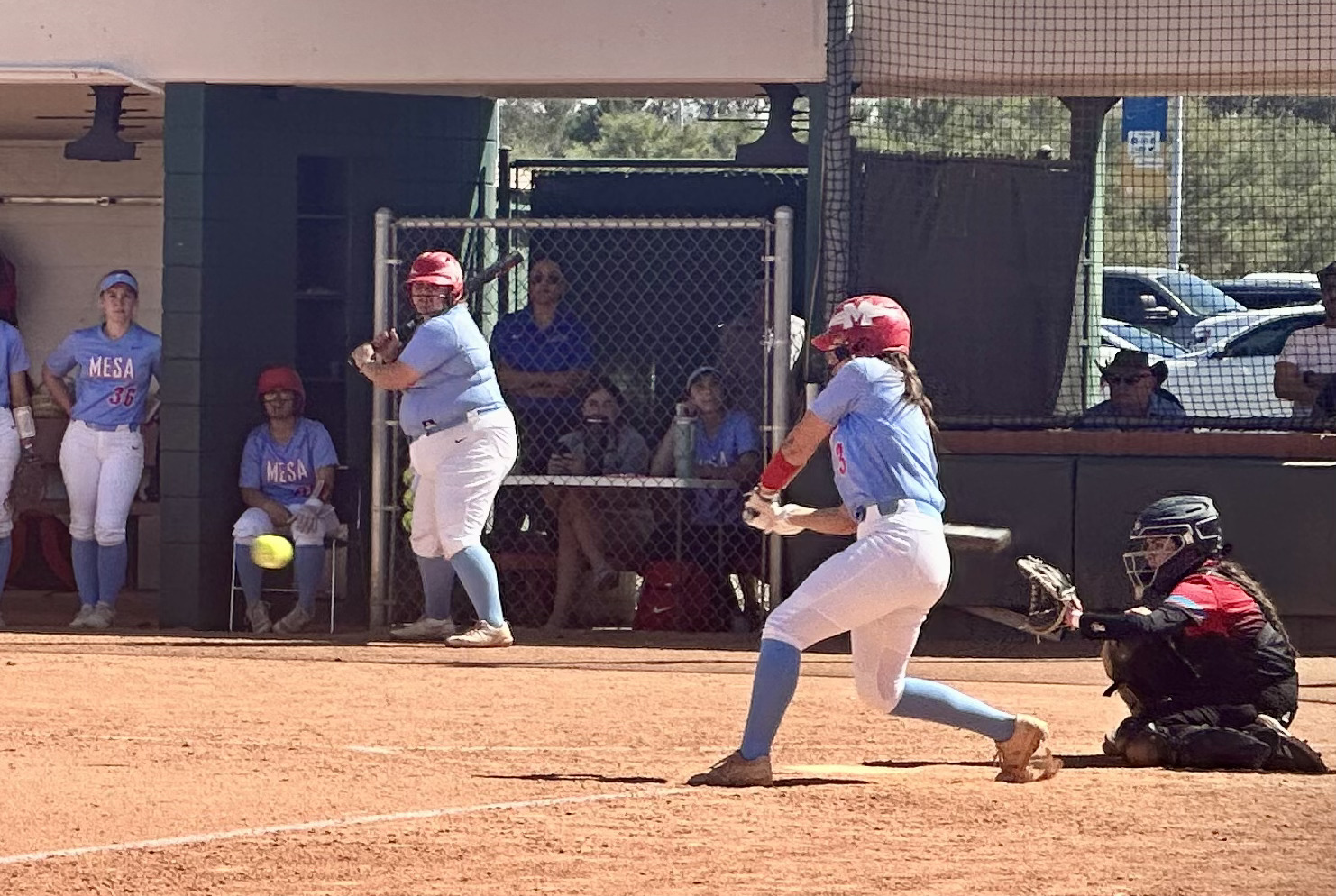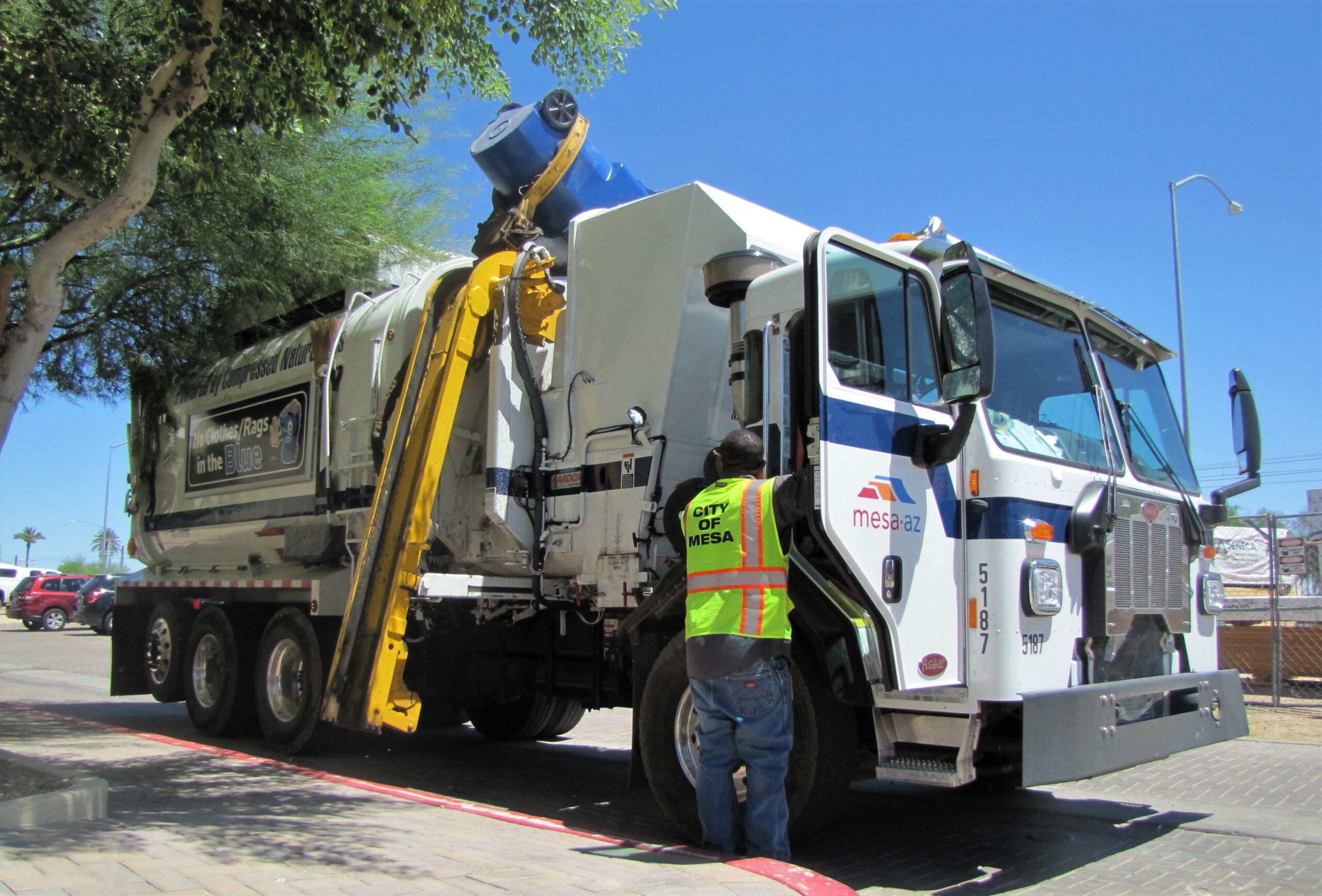How China, COVID-19 and a structural fire crippled Mesa’s recycling program
In middle March, during the early stages of the pandemic, the City of Mesa announced a temporary hold on its recycling services, landfilling all collected recyclables until further notice— without reductions to the cost of service.
The decision came after a series of global and local events took away any ability for the city to process its recyclables. One of the most threatening, according to Mariano Reyes, marketing communication specialist for the City of Mesa Environmental Management and Sustainability Department, comes from China.
“China, which was basically buying up about 30% of the United States’ recycling material, started noticing that they were getting a lot of… trash being mixed in with the bales,” Reyes said.
This was a problem for the nation, which began facing massive trash importation issues after independent operators would import mounds of recyclable material, only to find it contaminated and soon abandon it.
“So the Chinese government was trying to take control of it… In 2013 they had implemented what was called the Green Fence where they were trying to curve and restrict any of that trash material from coming in,” Reyes said. “Unfortunately, it still did not work, and they still had a lot of issues.”
Finally in 2018, China implemented The Green Sword and nearly restricted all materials coming into the country while placing additional restrictions on any that did. Most nations were unprepared for the loss of such a big market, and many felt they had nowhere to turn in the search for ways to either process their own trash or meet the new Chinese standards.
It was estimated that before China dropped out of the recycling market, it was the importer of nearly 70% of the world’s plastic. Like most American cities, outsourcing trash services was a common practice in Mesa, so when the global market crashed, the city had to adapt. Local processing facilities tried to step up, but the problems continued to mount.
“Demand for a lot of the material was no longer there,” said Reyes.
Most cities either kept on the illusion of recycling services or left the game entirely to save costs. Mesa chose to reduce as much as possible with hopes the global situation would improve.
In the last months of 2019, the city announced the “New” recycling program, a stripped down version of the old one. Accepting fewer types of items and increasing standards, Mesa hoped to continue its tradition of recycling while offsetting some of the larger costs associated with the process. Still, it wasn’t just a shift in global markets that ultimately forced City of Mesa officials to cut recycling in March; it was caused, in part, by compounding pressure within the industry.
“There’s been a lot of challenges,” Reyes said.
One of which, a devastating structural fire, crippled the local industry by shutting down the Salt River Landfill in October 2019. Although the fire didn’t harm anyone, it removed one of three of the city’s vendors capable of processing the amount of recycling the city produced. The second vendor, faced with the increased challenge of dealing with Chinese standards, only complicated things for the city.
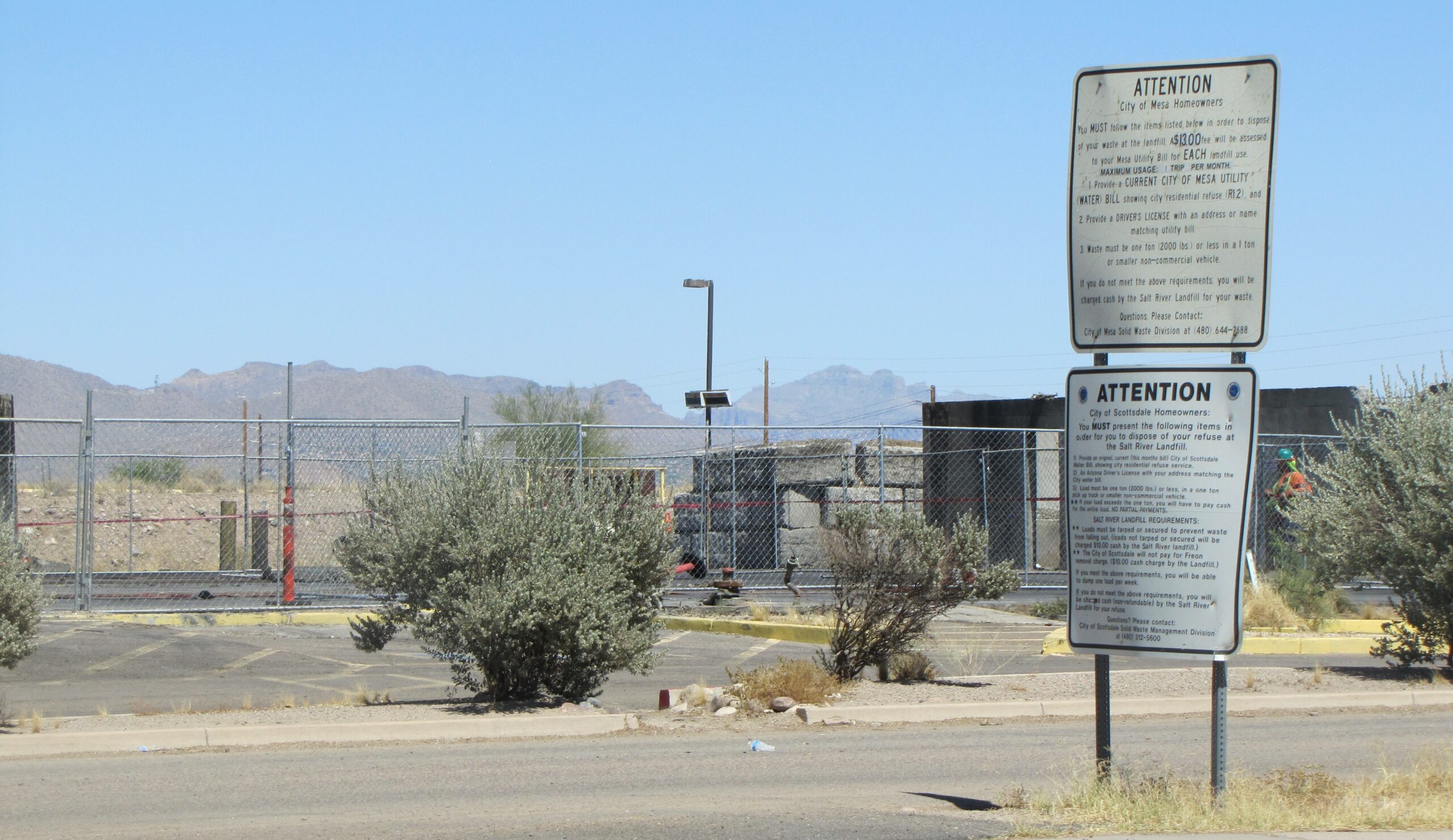
“They were going to significantly raise processing fees. They were also going to add transportation costs, and on top of that, there wasn’t going to be any type of assurances that the material we would take to the facility would be recycled,” Reyes said. “If for some reason they couldn’t find a market for it, they would just landfill it.”
Eventually, the city and the second vendor cut ties, leaving only the third remaining for processing. Unfortunately, they were only capable of processing 15% of the recyclables the city brought in, and thus left Mesa with few options for how to deal with their mounting garbage problem.
Then COVID-19 struck and further worsened the situation. In an effort to help contain the eruptions of the virus, the city placed a temporary hold or reduction on many of their typical services. Among them was recycling, chosen as a potential way to save money for other, more functional, city services.
“The decision was made at that point to temporarily collect both the blue recycle barrels and green yard waste barrel with the same truck and temporarily landfill that material,” Reyes said.
Collecting both barrels in the same truck lowered the amount of trucks operating overall while maintaining the same level of service.
“The first reason behind this was we wanted to make sure that we had enough staffed vehicles available to service the collection routes,” Reyes said. “In the unlikely event that a staff member would be impacted, whether our operators would be impacted, or a family member of one of them, and the operator would have to go into quarantine–we wanted to make sure we had enough staff to service the routes. It’s an important essential service.”
“The other reason why this decision was made was, knowing that COVID-19 was going to have a financial impact on the city, we were anticipating that impact, and so our department selected this measure to help the city weather the financial storm.”
Because the city didn’t own its own landfills, it was required to pay fees to process the recyclables. This wasn’t typically an issue in the past because the money was sourced from both utility bills and the profit from the recycled materials. However, since the fire, global market changes and vendor issues, the markets no longer offered the same profit. Mesa was essentially forced to pay for a service that barely stood.
“It was costing more to recycle the material than to just landfill it,” Reyes said.
So they decided to reduce the city’s recycling program to save money in a time of expected financial crisis. There was no reduction in fees because the city wasn’t actually making any profit; they were spending it all, and more, on the recycling process itself.
Any money it did save assists the city’s general fund, which continues to pay for a plethora of services during the COVID-19 crisis.
The complicated nature of the situation is not lost on city officials, who feel their own loss at the temporary shutdown.
“It’s difficult knowing that the material that we are generating has nowhere to go, but… I understand also the reality of what’s going on in the industry,” Reyes said. “We are looking for solutions. We are not going to stop recycling. It’s just we’re going to have to do a temporary pause, reset and figure out a sustainable solution so we can reignite the program back up.”
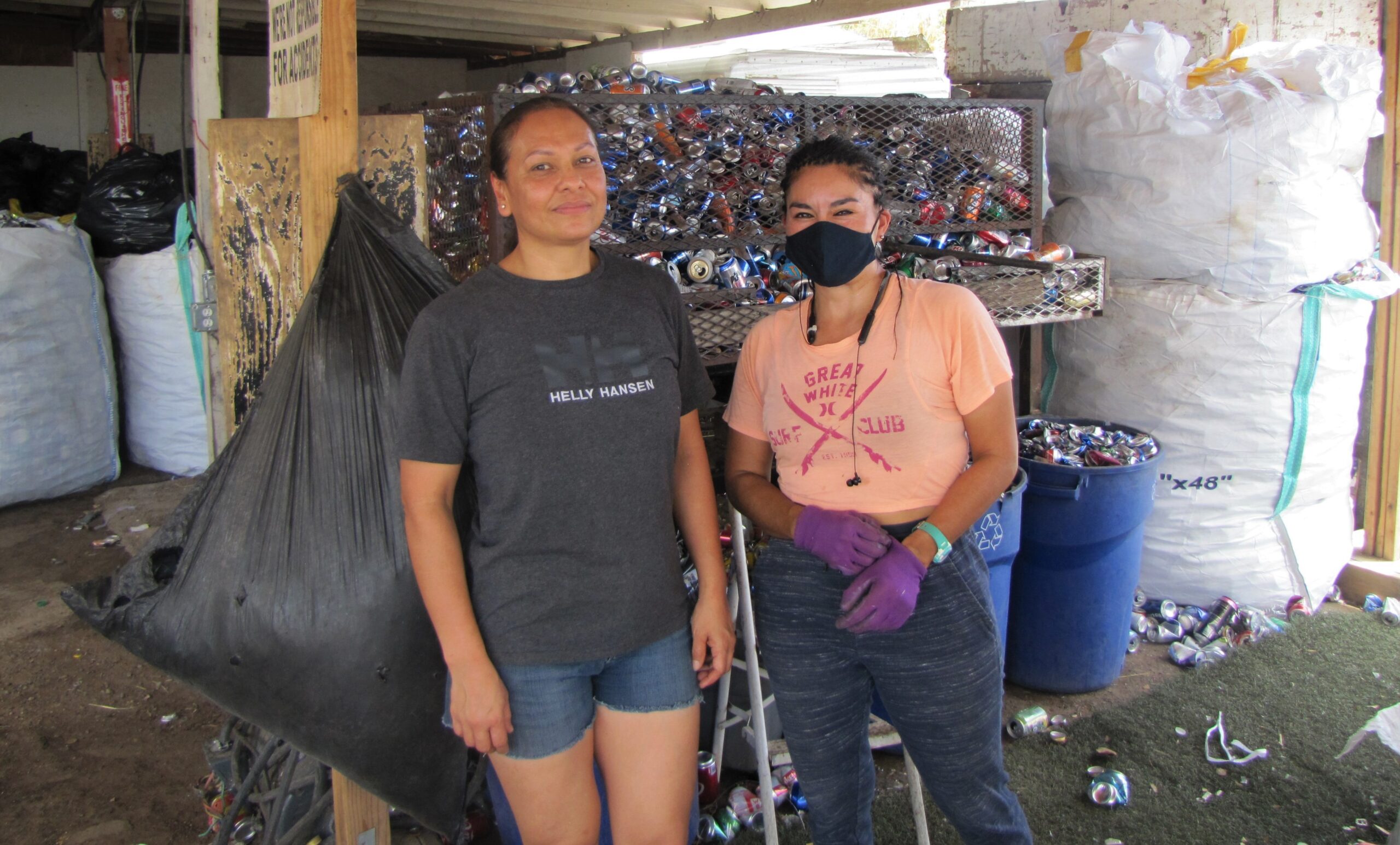
Matilde Lara Andrade, owner of Clean the Planet Recycling, offers the perspective of a private business dealing with the same issues. She said since the COVID-19 shutdown in March, she has seen little change in business. Still, the same troublesome contaminating garbage that local and international vendors fear is a problem for her as well.
“For some people, they can’t keep plastic and cans separate,” Andrade said. “A pound, three pounds, thirty. It’s always different. We have to separate it out ourselves.”
One of the main reasons why small outlets like Clean the Planet Recycling can operate and turn a profit while the city can’t is because they screen materials before they are accepted. They won’t accept a simple plastic bag full of trash, they need people to bring only what they will buy, the proper cans and plastic. Other recycling facilities tend to avoid cans and plastics altogether, opting instead to focus on scrap metals or mechanical parts.
The irresponsible recycling habits of citizens is a common thread. It would seem from the outside, if people simply kept their trash and recycling separate, or reduced the amount of trash they produced altogether, most of these issues would either disappear or be much easier to handle.
“About 25% of what people throw into their recycle containers on the national scale here in the U.S. is actually non-accepted material,” Reyes said.
Today, city officials are left with little to do but wait for COVID-19 to settle down and more vendors to appear in the markets. Meanwhile, Environmental Protection Agency experts instruct those who are concerned about negatively impacting the environment to reduce the amount of trash they produce by limiting items like single serving food packages or water bottles.
“Reduce and reuse. That’s the best thing you can do,” Reyes offered. “If we reduce the amount of waste that we generate, we don’t have to worry about it winding up in a landfill.”
Perhaps, however, there is still a place for private businesses to step up where the city can no longer provide. When asked if people could bring their cans and plastic to businesses like hers to be recycled properly, Andrade smiled.
“Yes, of course.”
